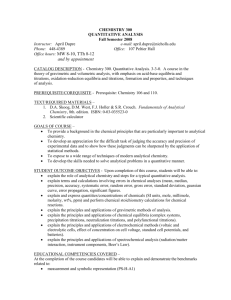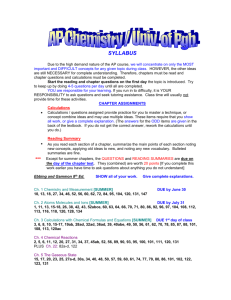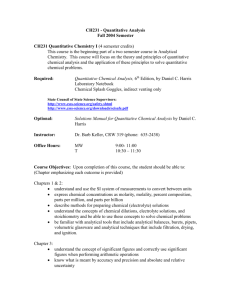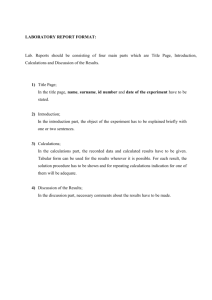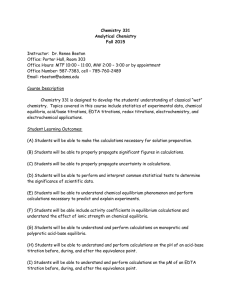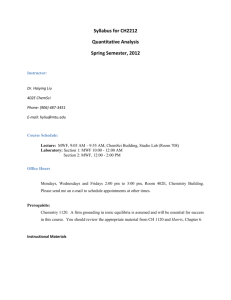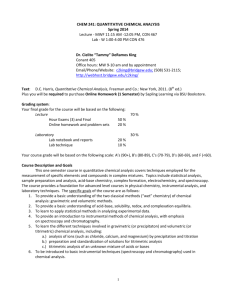CHEM 331 - Analytical Chemistry
advertisement
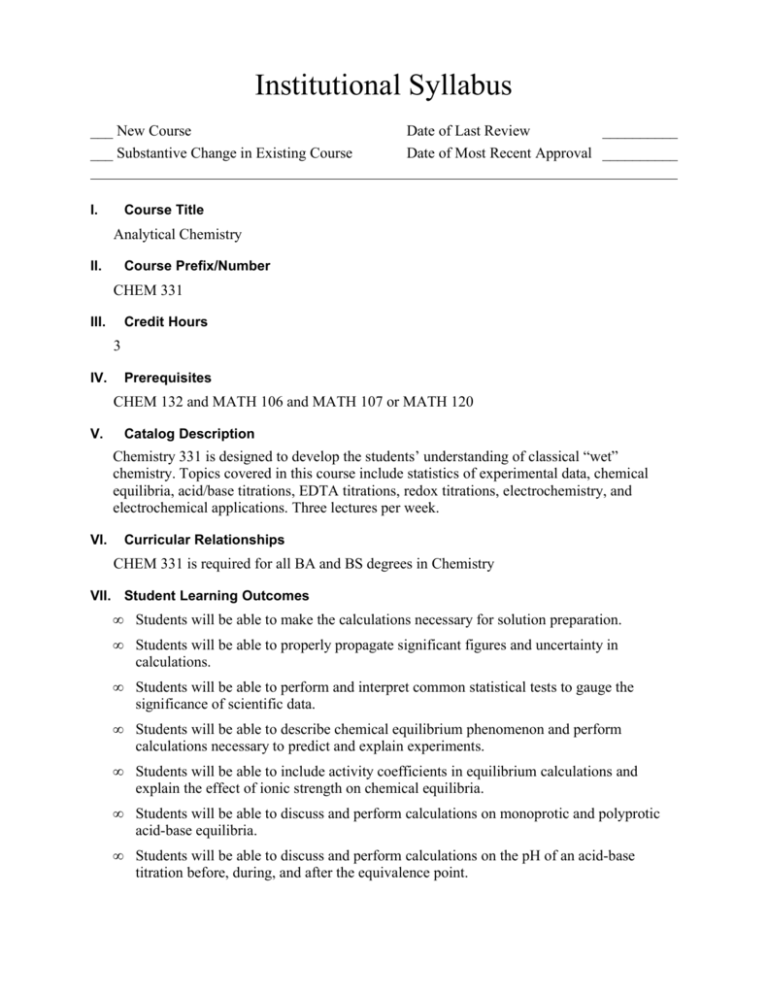
Institutional Syllabus ___ New Course ___ Substantive Change in Existing Course I. Date of Last Review __________ Date of Most Recent Approval __________ Course Title Analytical Chemistry II. Course Prefix/Number CHEM 331 III. Credit Hours 3 IV. Prerequisites CHEM 132 and MATH 106 and MATH 107 or MATH 120 V. Catalog Description Chemistry 331 is designed to develop the students’ understanding of classical “wet” chemistry. Topics covered in this course include statistics of experimental data, chemical equilibria, acid/base titrations, EDTA titrations, redox titrations, electrochemistry, and electrochemical applications. Three lectures per week. VI. Curricular Relationships CHEM 331 is required for all BA and BS degrees in Chemistry VII. Student Learning Outcomes • Students will be able to make the calculations necessary for solution preparation. • Students will be able to properly propagate significant figures and uncertainty in calculations. • Students will be able to perform and interpret common statistical tests to gauge the significance of scientific data. • Students will be able to describe chemical equilibrium phenomenon and perform calculations necessary to predict and explain experiments. • Students will be able to include activity coefficients in equilibrium calculations and explain the effect of ionic strength on chemical equilibria. • Students will be able to discuss and perform calculations on monoprotic and polyprotic acid-base equilibria. • Students will be able to discuss and perform calculations on the pH of an acid-base titration before, during, and after the equivalence point. • Students will be able to discuss and perform calculations on the pM of an EDTA titration before, during, and after the equivalence point. • Students will be able to discuss and perform calculations on electrochemistry fundamentals including galvanic cells, standard potentials, and the Nernst equation. VIII. Content Outline • Measurements • Experimental Error • Statistics • Gravimetric and Combustion Analysis • Chemical Equilibria • Titrations • Activity • Acid-Base Equilbria • Acid-Base Titrations • EDTA Titrations • Fundamentals of Electrochemistry • Redox Titrations IX. Course Procedures/Policies/Grading Scale • Students are expected to attend all lecture sessions. Homework is assigned and graded. In addition, online quizzes are administered every week. Typically, four or five hour exams and a comprehensive final exam (standardized ACS examination in analytical chemistry) are given for this course • Normal grading is used for this course. Grading Scale: >90 = A; 80-89 = B; 70-79 = C; 60-69 = D; <60 = F X. Required/Recommended Readings The typical text used is the current edition of Quantitative Chemical Analysis by Daniel C. Harris XI. Issues Unique to this Course Co-Requisite: CHEM 331L, unless the student has successfully completed (grade of C or better) the laboratory in a previous semester. XII. Additional Departmental Issues None

